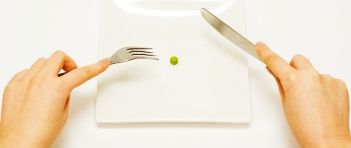Publication
Article
Is Preoperative ‘NPO After Midnight' Still Necessary?
Author(s):
Although preoperative fasting is intended to address stomach acid and prevent the aspiration of gastric contents, some experts believe it is based more on tradition than necessity.

Patients who are scheduled for elective surgery are often told to fast after midnight on the day of their surgery. Although this recommendation is intended to address stomach acid and prevent the aspiration of gastric contents, some experts believe it is based more on tradition than necessity.
Patients who are “nil per os (NPO) after midnight” or can only take clear liquids up to 2 hours before their surgery often find this requirement burdensome, and recent research seems to suggest preoperative fasting may even increase their risk of complications. Furthermore, some studies have found that drinking a carbohydrate-rich clear liquid beverage before surgery may improve outcomes. Nevertheless, actual practices vary widely among surgical units.
The latest issue of Gastroenterology Nursing included an engaging review of the “NPO After Midnight” issue. The authors began with a historical overview, describing how the practice seemed to have become standard in the 1960s. However, the researchers noted that NPO was intended to prevent patient nausea, not medical complications.
Next, the authors debunked physician intuition, which suggests that an empty stomach is wise. As gastric emptying slows or quickens based on numerous factors, clinicians cannot intuitively predict when a patient’s stomach will be empty. Plus, limiting intake can exacerbate dehydration and possibly increase the risk of infection.
In some of the studies examined in this review, patients who drank carbohydrate-rich liquids experienced reduced postoperative nausea, vomiting, anxiety, hunger, and thirst. Thus, the authors recommended a preoperative carbohydrate-rich clear liquid beverage as the standard of care. However, their endorsement is limited by the absence of a commercially available beverage that has 12.5% carbohydrates, although beverages with other carbohydrate concentrations are accessible. If a 12.5% carbohydrate beverage becomes available, patients would need to consume 800 mL the night before surgery and 400 mL 2-3 hours before surgery, the authors said.
Preoperative feeding and fasting is an area surgeons often accept at face value. This summary of the evidence will certainly change a few surgeons’ minds, and perhaps, improve care for patients.





